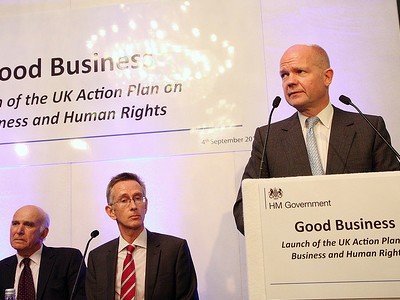16th October 2013
Blog Action Day: Human Rights and the Holy See


16 October is Blog Action Day, when bloggers across the world are encouraged to post on the same theme. I participated last year. As the theme for 2013 is “Human Rights”, as a blogger and as an Ambassador to the Holy See, I can hardly fail to do so again.
I recommend to anyone interested in the engagement of the Holy See with universal human rights work the speech given by Secretary for Relations with States Archbishop Dominique Mamberti, earlier this year in Geneva, at the 22nd Session of the Human Rights Council.
Mamberti explains that the Catholic Church’s approach to human rights is by definition universal, because it is rooted in the individual human being, the dignity of the human person, whatever their faith or creed. He argues that: “The Catholic Church’s acknowledgement of the legitimacy of human rights is not only a moral or political duty. It has deep roots in its convictions and beliefs”.
Not everyone will agree with all of Archbishop Mamberti’s arguments – and there are aspects of the human rights debate on which my government takes a different view from the Holy See – but he must be right when he argues that we should “resist the slide of human rights into a rhetorical void”.
Yes, we need aspirations. But we also need to turn those into reality. And that sends me back to the famous Four Freedoms of Franklin D. Roosevelt, on which the Universal Declaration of Human Rights was largely based: freedom of speech, of worship, from want, from fear. They are, for me, the essence of what any citizen of the modern world should be able to expect from the state, whilst recognising that he or she has duties and responsibilities as well as rights.
Which begs the question. How many states live up to those Four Freedoms in practice? We have our aspirations, and know what we are aiming for. But there is still so much practical work to be done. While we must keep our eye on the universal big picture, we can also make progress through incremental steps.
The recently launched UK action plan on Business and Human Rights is, I believe, a good example. What do you think?
#Bad2013
I think that Pope Francis will further human rights issues – he knows the people and he knows their needs!
http://dave-lucas.blogspot.com/2013/10/blogactionday-meet-4-remarkable-ladies.html